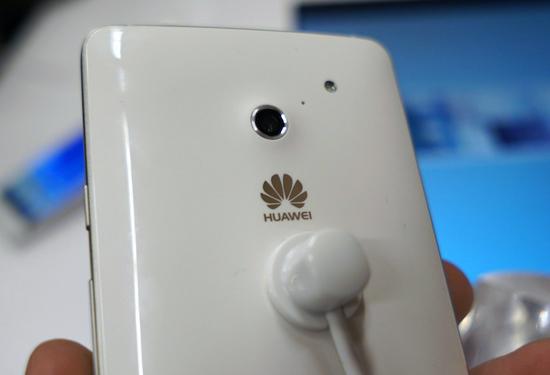
When it comes to the U.S. wireless market, Huawei is a name that we typically see attached to lower-end hardware, if we see it at all. Huawei has been trying to change that in recent years by making itself a larger player in the U.S. mobile industry, but so far it hasn't had much success. Now it looks like the company is throwing in the towel on its quest to increase its presence in the U.S.
The Financial Times notes that while speaking today at Huawei's annual analyst summit, company EVP Eric Xu said that Huawei is "not interested in the U.S. market anymore." Li Sanqi, CTO for Huawei's carrier networking group, went on to say to the IDG News Service that Huawei will not be focusing on the U.S. "due to whatever geopolitical concerns." Despite the fact that Sanqi wants to break into the U.S. market, the exec explains that Huawei will instead focus on the rest of the world, "which is reasonably big enough and is growing significantly."
Huawei has been the target of U.S. security concerns as of late, and while the company has denied all of the accusations that have been made against it, the claims have made it difficult for Huawei to do business in the U.S. One of the most recent examples of this is an agreement made between Sprint, SoftBank and the U.S. government in which both carriers promised that they wouldn't use any Huawei network equipment with their wireless service.
Huawei has been responsible for some impressive hardware over the years, including the Ascend P1, Ascend P1S, Ascend D2 and Ascend Mate. None of those devices have hit a major U.S. carrier, though, meaning that most wireless customers are likely unaware that Huawei exists. Now it appears that that won't be changing any time soon, which is a bummer since it's always good to have more choices when it comes time to select a new smartphone. Have you ever owned a Huawei device or been interested in checking one out?
UPDATE: Huawei has gotten in touch with us to provide an official statement on Eric Xu's comment. The company says that with the situation that it's currently in, it will have a hard time making the U.S. an important source of revenue and growth for its carrier network business. However, Huawei's is still committed to providing support and services for its U.S. customers. The firm's full statement is as follows:
"Long story short, the comment that was made reflects the realities of our carrier network business in the U.S. The growth of our carrier network business is primarily from developed markets in other parts of the world. Considering the situation we currently face in the U.S., it would be very difficult for the U.S. market to become a primary revenue source or a key growth area for our carrier network business. Nevertheless, our U.S. employees remain committed to providing quality services for our customers.”